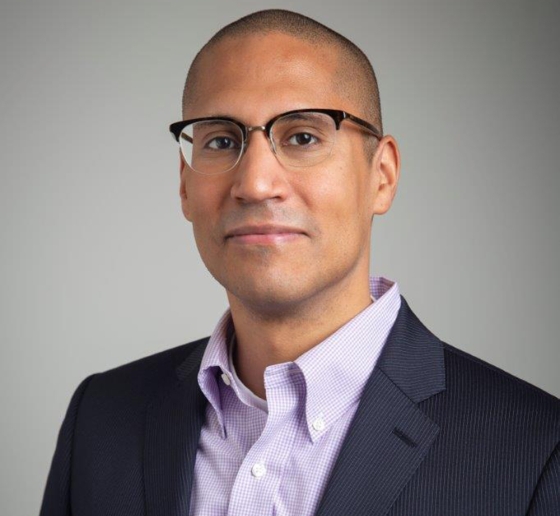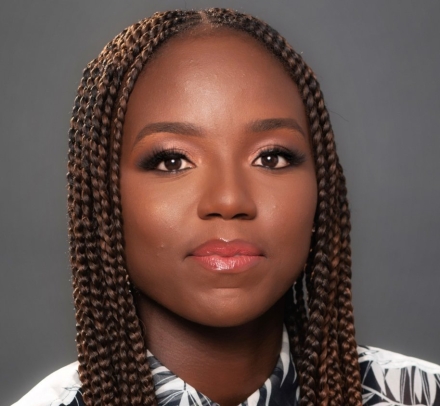How I Got Here: Adriel I. Cepeda Derieux ’10
Adriel I. Cepeda Derieux ’10 is deputy director of the Voting Rights Project at the American Civil Liberties Union in Washington, D.C.

What exactly do you do?
The Voting Rights Project litigates voting rights cases nationwide in both federal and state courts. As deputy director, I help supervise the group staff and also plan the project’s litigation strategy. I also have a few cases that I litigate directly with colleagues and other co-counsel. So my work is usually divided between day-to-day case management on those cases and helping other lawyers develop and navigate their own. I also help the ACLU’s policy advocacy team advance voting rights legislation, both in states and in Congress.
A lot of work is spent making decisions about where to litigate and what issues make the most sense to litigate. Voting rights is a space where there are other groups that do a lot of wonderful work. We often partner with those groups, including the Legal Defense Fund, the Lawyers’ Committee for Civil Rights Under Law, the Brennan Center, LatinoJustice PRLDEF, MALDEF—I could go on. There’s a lot of time spent in coalition with these groups and thinking about the broader voting rights and civil rights landscape. I get to work with many colleagues across these groups, and many of them actually are also Columbia Law alums.
How do you decide what cases to take on?
The driving force for the Voting Rights Project is that voting should be easy and accessible to eligible voters. So we try to bring cases that accomplish that in some way or form. We also believe that democracy should be as inclusive as possible. So we try to look for cases that push equity forward. We mainly focus on vulnerable communities, like racial minorities or voters with disabilities—we’re increasingly doing work in that space. Our work is impact litigation. So there’s the strategic work of looking at where it makes the most sense to bring these cases where people are being hurt the most by certain practices and where our help is best used. A lot goes into the mix—there’s no checklist to go through that at the end leads us to say, we’re 100% bringing this one.
What do you like about your job?
It brings together many parts of me. I’ve been passionate about history, civil rights, and the notion that the only way to really live up to the country’s best ideals is by making sure that democracy is inclusive. I feel lucky that I can use whatever skills I have as a lawyer to help more people vote and make sure that their votes count. I also love the people that I work with and the clients we represent. The lawyers in the group are very mission driven, remarkably talented. It’s really a joy to work with and learn from them. And I’m always honored that our clients trust us to lift up their stories, to help bring the change they want to see in their communities.
What is the hardest part of your job?
The pace in the field has been relentless in recent years. Starting in early 2020, our project filed many lawsuits to make it easier for people to vote in the pandemic. We had the 2020 election, which, as everyone knows, was very well litigated. And things really haven’t slowed since then. I’d add also, balancing work with personal life. My partner and I have two young kids, and her work is no cakewalk either. So time often feels in short supply.
Some Americans continue to question the legitimacy and fairness of the election process. As we head into the November election, what are your thoughts on this?
I do find it unfortunate that voting rights as a concept has become polarizing or politicized. One of my favorite parts about what I do is that it really is voter-centric. We really do put the voter front and center. We don’t represent a candidate or a party. I’ve seen it become more polarizing to even do this kind of work. So that is unfortunate. The upcoming election is keeping us busy—has kept us busy already.
Did you always intend to go into public interest law?
No, not necessarily. In private practice, I was able to sharpen skills as a generalist that have helped me later in my career. When I decided to become a little more specialized, things like writing, ways to think about trial and appellate procedure and how they might influence each other, ways to be a better oral advocate in court—those are all tools that I got to focus on at a really early stage and I still use daily. As time went on, I decided to use my skills for something that at the time felt increasingly urgent to me: safeguarding voting rights.
Was there a particular moment that galvanized that decision?
The 2013 Shelby County v. Holder decision from the Supreme Court knocked a lot of us back. The 1965 Voting Rights Act has been key to voting rights and to democracy in the United States for close to 60 years. Going into the decade beginning in 2010, many of us had always lived under that umbrella, and all of a sudden, it wasn’t there anymore. Overnight, protecting voting rights felt a great deal more urgent.
How did you make the switch from Big Law to the ACLU?
WilmerHale gave me a lot of rope to find pro bono work that I found particularly valuable. I did more and more pro bono work to the point that when I decided to leave the firm, I had worked with the ACLU in immigration litigation and voting rights litigation. I was able to say, look, I’ve been in private practice, but this is something that I’ve cared for and that I’ve made a point of heading toward for a very long time. I think that was very important.
Why did you become a lawyer in the first place?
I was born and raised in Puerto Rico, which is famously—or notoriously, however you want to say it—part of the United States, even though the people who live there can’t vote for anyone who passes the federal laws that they have to follow. That played a big part in my journey. I grew up admiring civil rights heroes like Martin Luther King and Thurgood Marshall and all that they accomplished. But at the same time, I realized there were gaps between what democracy was and could be. A lot of what drove me to study history and politics, which I did in college, and then law, were those questions I had about those inequities. In many ways, I’m still trying to answer a lot of those questions.
Have you had particular mentors who inspired you?
I would first include Professor Christina D. Ponsa-Kraus, who was my note adviser and is now a close friend. Her scholarship [on the Insular Cases] was pivotal to me, and I’ve had the pleasure to collaborate with her many times over the years. She’s still usually one of the first people I call whenever I’m trying to make a big decision. I’ll also mention Debo Adegbile, a partner at WilmerHale. He led litigation at the Legal Defense Fund for many years. I learned many things from him, most importantly, how to align your skills and talents as a lawyer with the values that you’re passionate about.
What motivates your work?
What motivates me—other than my wife and two kids—is still hoping to find some answers to how best to give the ideals that I know this country was founded on as much life as possible. Seeing how those ideas play out day in and day out, seeing people who are trying to make their communities better and trying to make their everyday life better and easier, and seeing the impact that voting can have on our community is both inspiring and encouraging.
Do you have professional ambitions yet to be fulfilled?
I’m at a place where I really enjoy what I do. I am comfortable knowing that a career and a lifetime is a very long time, so I am open to whatever may come later, but I am happy where I am and really enjoy what I do. A law degree is very versatile, and a career can be pretty long, so it doesn’t do anyone any good to close doors before they’re even there.
This interview has been edited and condensed.
